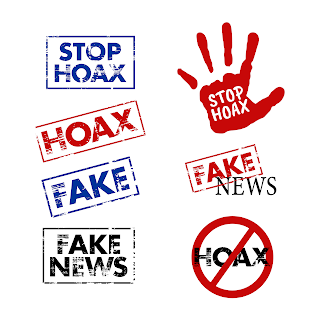UNTRUTHFUL NEWS
First of all, being able to distinguish biased information from genuine content. For example, If I was to put out an article stating that Donald Trump lied in his autobiography by saying he graduated from Wharton School of Finance when he did not graduate from Wharton. Perhaps this may be a problem because I don't prove that he did not graduate from Wharton School, but maybe another person has specific proof or even just common knowledge that indicates this. I don't even have to bother with linking sources because I could say that he didn't graduate from Wharton School.
The problem is that some people may think that it would be possible, or some people will not care whether they graduated or not. The issue isn't just about fake news but also about biased information where sometimes people read biased content and easily believe it to be true. And because of how easy it is for one to make an article with bias, the spreading of fake news becomes a real problem. This can easily be stopped by looking up credible sources of information or researching whether what's presented is true instead of believing what's published on the Internet.
As I said before, we all naturally believe what we see, hear, and read on the Internet, so finding biased information or propaganda is a concern. We can use common sense to determine whether what is being published is based on fact or nothing more than a biased opinion. But how do we assess bias? There are many ways we can go about finding the bias involved in an article we read. Just looking at whether the article was mentioned and if a particular person company-sponsored it or organization may indicate bias.
Also, checking your sources is very important. Making sure the information comes from reputable sources such as CNN or The Guardian will help determine if the news is informative or fake.
Finally, do your research. We tend to come across information online to create hysteria and panic, especially information involving COVID-19. Never jump to any conclusion when it requires information found on social media. Take the time to do your research and find out the validity of the information. You never want to be one of those who automatically share a post you read online only to find out later it was fake news. I did that once and felt so foolish afterward. If you follow these tips, you will be doing your part in stopping the spread of fake news on social media.
The purpose of the assignment was to find out how you can do your part to stop the spread of fake news on social media.
The key question at the heart of the assignment is have you spread fake news?



Comments
Post a Comment